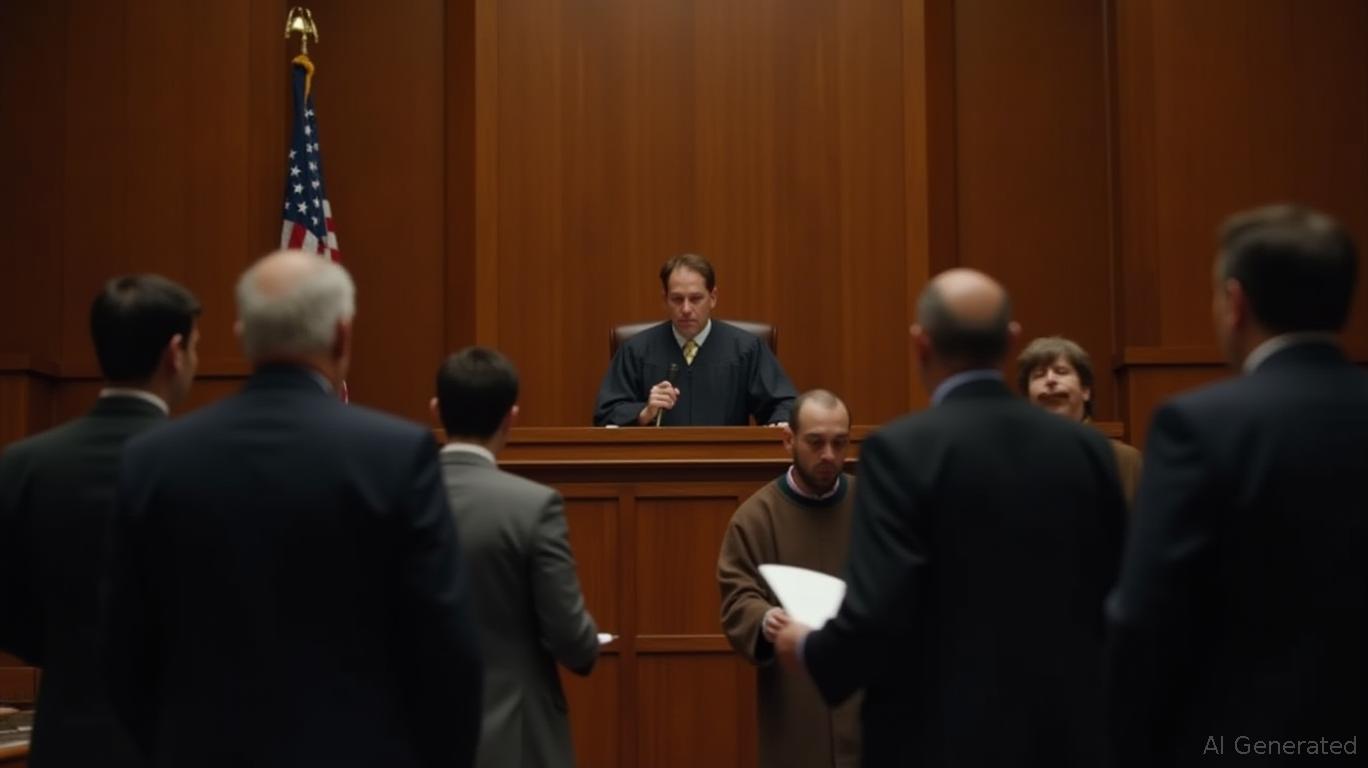Federal Court Affirms Federal Reserve's Authority in Granting Access to Payment Systems
- U.S. appeals court upholds Fed's refusal to grant Custodia Bank a master account, affirming its discretion to manage systemic risk. - Custodia argued its Wyoming charter qualifies for access, but the court emphasized the Fed's authority under the Federal Reserve Act. - Fed's "skinny account" proposal offers limited fintech access, but crypto banks face federal hurdles to parity with traditional institutions. - The ruling highlights tensions between state crypto innovation and federal oversight, with legi
A federal appeals court has upheld the Federal Reserve’s decision to deny Custodia Bank a master account, effectively blocking another legal path for the crypto-oriented bank to gain direct access to the central bank’s payment system. On Friday, the 10th Circuit Court of Appeals determined that the Fed has the authority to turn down master account requests, even from qualified entities such as Wyoming’s special purpose depository institutions (SPDIs). This ruling confirms a 2023 decision by U.S. District Judge Scott Skavdahl in Wyoming, which stated that the Fed is not legally required to approve Custodia’s application.
Custodia, established by ex-Morgan Stanley executive Caitlin Long, has long maintained that its Wyoming charter—which mandates full reserve backing for customer deposits—should make it eligible for a master account under current law. The bank’s legal dispute began in 2022 after the Federal Reserve Board of Governors delayed action on its 2020 application. In its appeal, Custodia argued that the Fed’s denial hinders both competition and progress in digital banking. Nevertheless, the appeals court stressed that the Federal Reserve Act’s wording gives the central bank the power to protect the financial system by selectively granting access.

This decision strengthens the Fed’s position that master accounts are not guaranteed entitlements, but rather instruments for managing systemic risk. The three-judge panel highlighted that the Fed’s discretion is essential for preserving financial stability, especially as it considers the risks posed by emerging financial technologies. “We decline Custodia’s effort to limit the Fed’s capacity to protect the nation’s financial system,” the opinion read. This is consistent with recent comments from Fed Governor Christopher Waller, who suggested a “limited master account” model for entities focused on payment innovation. Such accounts would limit access to certain Fed services, excluding features like interest-bearing balances and borrowing from the discount window, to reduce risk.
As a result of the ruling, Custodia is left with few alternatives other than continuing to use intermediary banks for access to the Fed. In a statement after the decision, the bank acknowledged the disappointment but pointed to a strong dissent among the judges, indicating possible grounds for future legal action. “Although we hoped for a favorable outcome at the [10th] Circuit today, we did receive a significant dissent,” Custodia posted on X. However, legal analysts see this verdict as a major obstacle for state-chartered crypto banks aiming for equal treatment with traditional banks. The Fed remains hesitant to accept Wyoming’s SPDI framework, which is tailored for crypto custody, due to worries about systemic risk.
This case highlights ongoing friction between state-driven innovation and federal regulatory control. While states such as Wyoming have led the way in creating crypto-supportive laws, the Fed’s centralized oversight of payment systems means that newcomers must meet strict federal requirements. Waller’s “limited account” idea, though not a direct victory for Custodia, shows a cautious willingness to include fintechs. Still, as the appeals court’s ruling demonstrates, it is unlikely that courts will force the Fed to broaden access without new legislation.
Crypto supporters and investors will now look for other paths forward, such as legislative changes or private sector solutions. For the time being, Custodia’s experience illustrates the difficulties of bringing crypto banking into the U.S. financial landscape—a process still firmly controlled by federal authorities.
Disclaimer: The content of this article solely reflects the author's opinion and does not represent the platform in any capacity. This article is not intended to serve as a reference for making investment decisions.
You may also like
Bankr co-founder: 4.7% of BNKR tokens have been staked, amounting to approximately $2.6 million.
Bitdeer's Bitcoin holdings have surpassed 2230 BTC, with 121 BTC mined last week.
Data: Tron network DEX trading volume rises to $3.044 billion